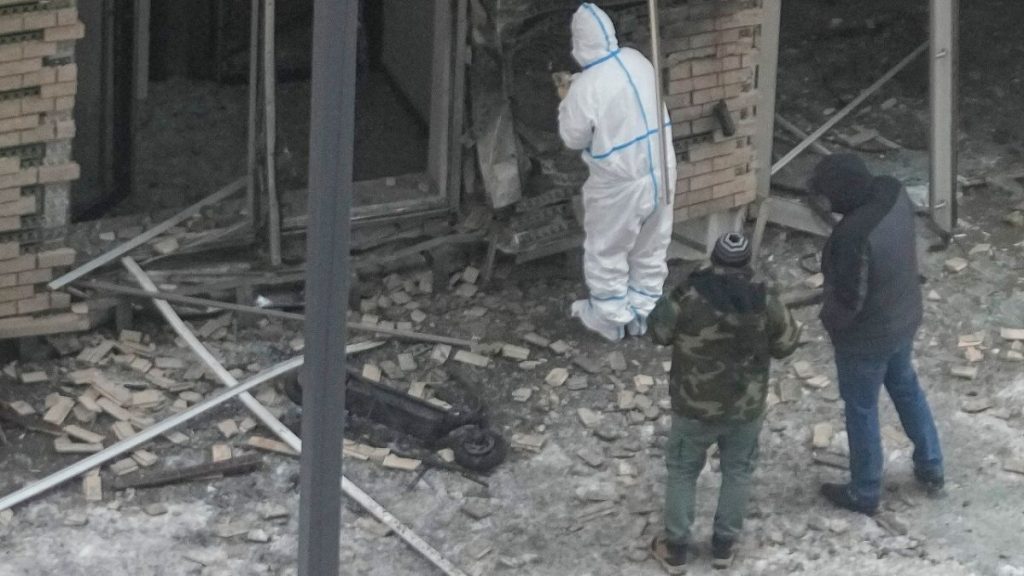The Assassination of General Igor Kirillov: A Deep Dive into the Incident, its Implications, and the Surrounding Information Warfare
The assassination of General Igor Kirillov, head of Russia’s nuclear, biological, and chemical protection forces, has sent shockwaves through the ongoing conflict between Russia and Ukraine. Kirillov, a prominent figure in the Russian military, was killed in an explosion outside his apartment building, a targeted attack that has escalated tensions and raised critical questions about the trajectory of the war. This incident, marked by claims and counterclaims, highlights the increasing role of information warfare in shaping the narrative and influencing public perception.
The specifics of the assassination are still under investigation, but initial reports suggest a remotely detonated device concealed within an electric scooter was responsible for the explosion. Russia’s security service, the FSB, swiftly detained a 29-year-old Uzbekistan national, alleging his recruitment by Ukrainian intelligence. This assertion aligns with Ukraine’s Security Service (SBU) claim of responsibility, framing Kirillov as a "war criminal" and a legitimate target. The speed with which both sides presented their narratives underscores the high-stakes nature of the incident and the importance of controlling the flow of information.
The assassination comes amidst accusations of chemical weapons use by both sides. The SBU claims to have documented over 4,800 instances of Russian chemical weapons use since the February 2022 invasion, an accusation supported by the US State Department’s report of chloropicrin use against Ukrainian troops. Russia vehemently denies these allegations, countering with claims of Ukrainian use of toxic agents. Kirillov himself was a vocal proponent of these accusations against Ukraine, frequently holding briefings to accuse the Ukrainian military of employing chemical and radioactive substances. These claims, dismissed as propaganda by Ukraine and its Western allies, formed a key part of the information war surrounding the conflict.
Kirillov’s death has sparked strong reactions from both sides. Dmitry Medvedev, deputy head of Russia’s Security Council, vowed "inevitable retribution" against Ukraine’s senior military-political leadership, framing the assassination as a desperate attempt to distract from military setbacks. This rhetoric echoes the intensifying propaganda war between the two nations, where accusations and counter-accusations aim to undermine the opponent’s credibility and rally domestic support. Some Russian military bloggers and hardline commentators have even gone so far as to implicate the US in the assassination, accusations lacking any substantiating evidence and promptly denied by the US State Department.
The incident underscores the blurring lines between traditional warfare and information warfare. The immediate claims and counterclaims, coupled with the targeted nature of the assassination, highlight how information is weaponized to shape narratives, influence public opinion, and escalate tensions. The assassination itself could be interpreted as a tactical move within this larger information war, intended to demoralize the Russian military and project an image of Ukrainian strength and resolve. Conversely, Russia’s swift detention of a suspect and accusations against Ukraine serve to deflect blame and portray Russia as a victim of unfair tactics.
The assassination of General Kirillov adds another layer of complexity to the ongoing Russia-Ukraine conflict. It not only signifies a potential escalation in the conflict but also highlights the increasing importance of information warfare in shaping the narrative and influencing global perceptions. As the conflict continues, discerning truth from propaganda becomes increasingly challenging, making it crucial to critically evaluate information from all sources. The incident serves as a stark reminder of the human cost of war and the devastating consequences of escalating tensions. It remains to be seen how this event will further shape the trajectory of the conflict and the international response. The assassination and the subsequent information war surrounding it further complicate efforts to achieve a peaceful resolution, emphasizing the urgent need for de-escalation and a return to diplomatic channels.














